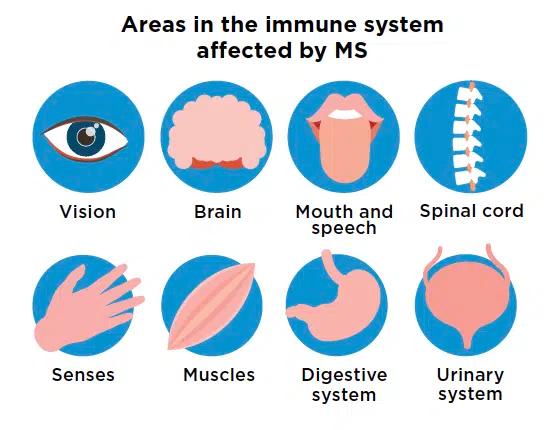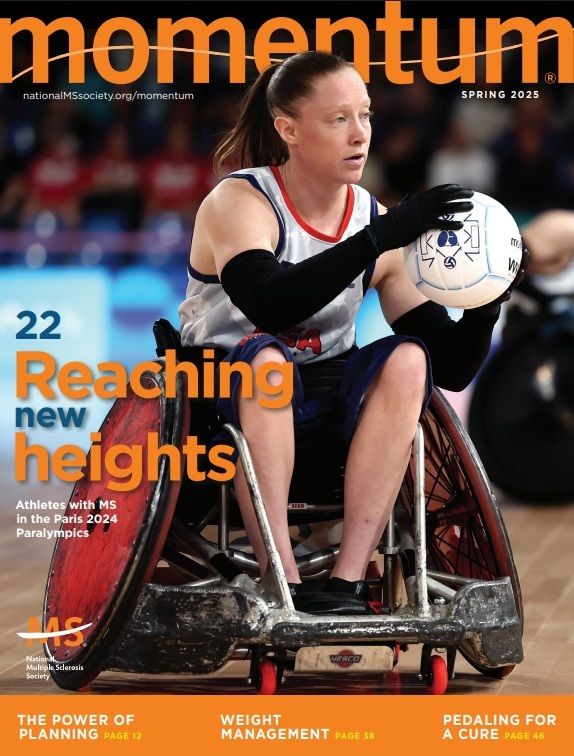This research, known as immune tolerance induction, involves extracting red blood cells from an individual with MS, mixing them with myelin antigens and other autoimmune antigens, and then injecting them back into the individual.Old red blood cells routinely die in the body and are replaced with new cells. The same happens with Martin’s doctored red blood cells. The research is designed to see if the human immune system views these antigen-coupled, dying cells in the same way it views regular red blood cells, and consequently doesn’t mount an immune response. In essence, the immune system would be trained to ignore the MS target antigen that had been glued onto red blood cells in people with MS, and not trigger the disease.A more drastic way of restoring immune tolerance is autologous haemopoietic stem cell transplant (aHSCT) therapy — indeed, Martin’s research was instrumental in Switzerland’s recent approval of aHSCT for people with aggressive MS.Like aHSCT, the tolerance-inducing therapy — which has been named RED4MS — will re-establish a tolerant immune system in people with MS. But RED4MS is not as invasive as aHSCT, which employs cytotoxic drugs to eliminate the entire immune system first and then re-establishes a new one from hematopoietic stem cells. Instead, RED4MS involves extracting red blood cells from a person via a simple blood draw. RED4MS is also more specific than aHSCT, which resets the entire immune system.Martin said, in studies so far, RED4MS does not seem to have the side effects of aHSCT, including loss of fertility in up to 30% of patients. aHSCT is also not a good option for people with mild disease, whereas RED4MS could potentially be used in a variety of individuals with MS, even in its earliest stages.Martin says the first trials with RED4MS have shown evidence of safety and tolerability in MS patients. Furthermore, studies in the laboratory indicate that it eliminates the autoimmune T cells. In lab animals, a single tolerization treatment like RED4MS completely eradicates the MS-like disease, but whether the same will also be found in humans will require further research.In 2023, the biotech startup that Martin, Andreas Lutterotti and team launched began a 1.5-year trial of RED4MS in more than 20 MS centers in four European countries. If the trial is successful, it could usher in an exciting new way to treat or even prevent MS.“It’s something immunologists have dreamed about for more than five decades, but most attempts have failed,” Martin says.













